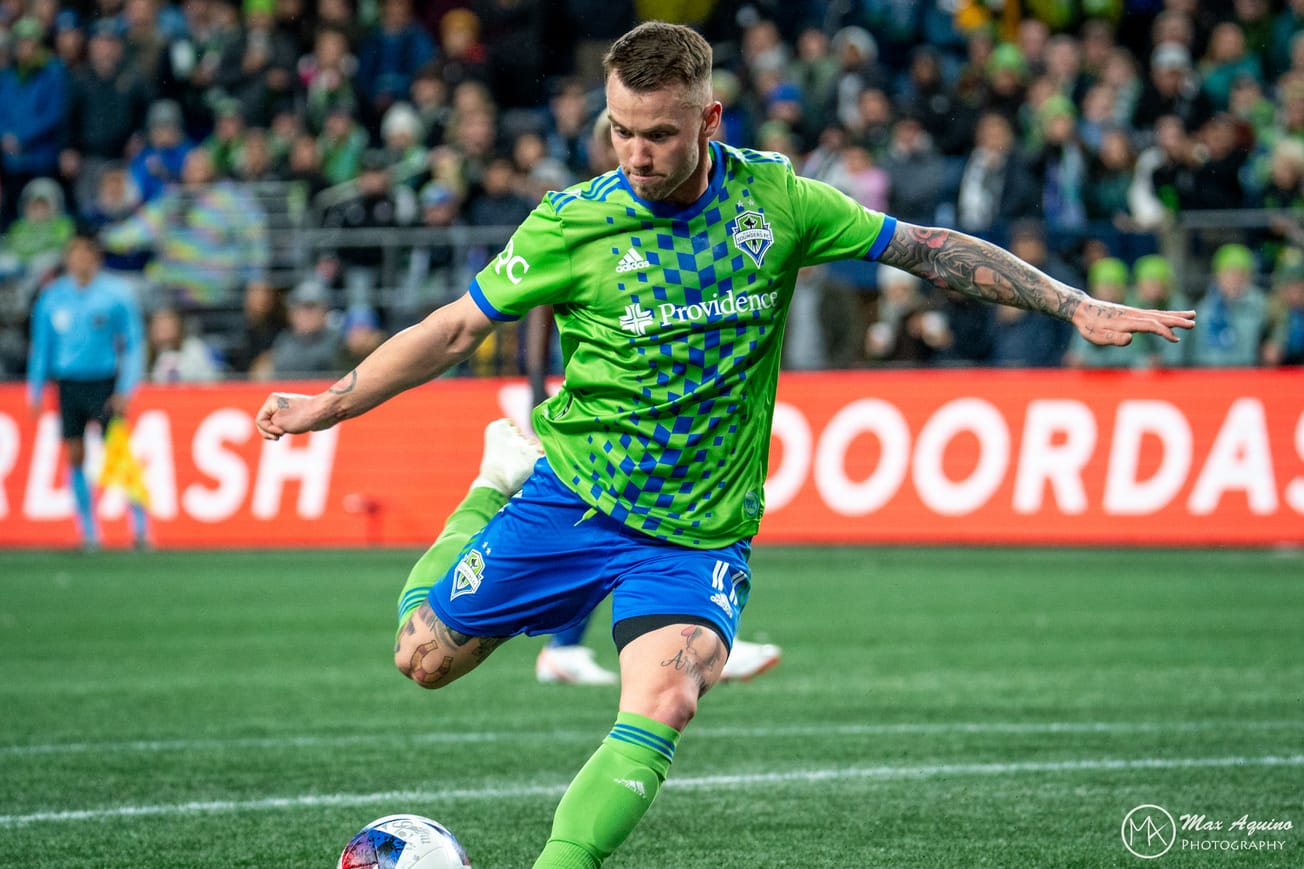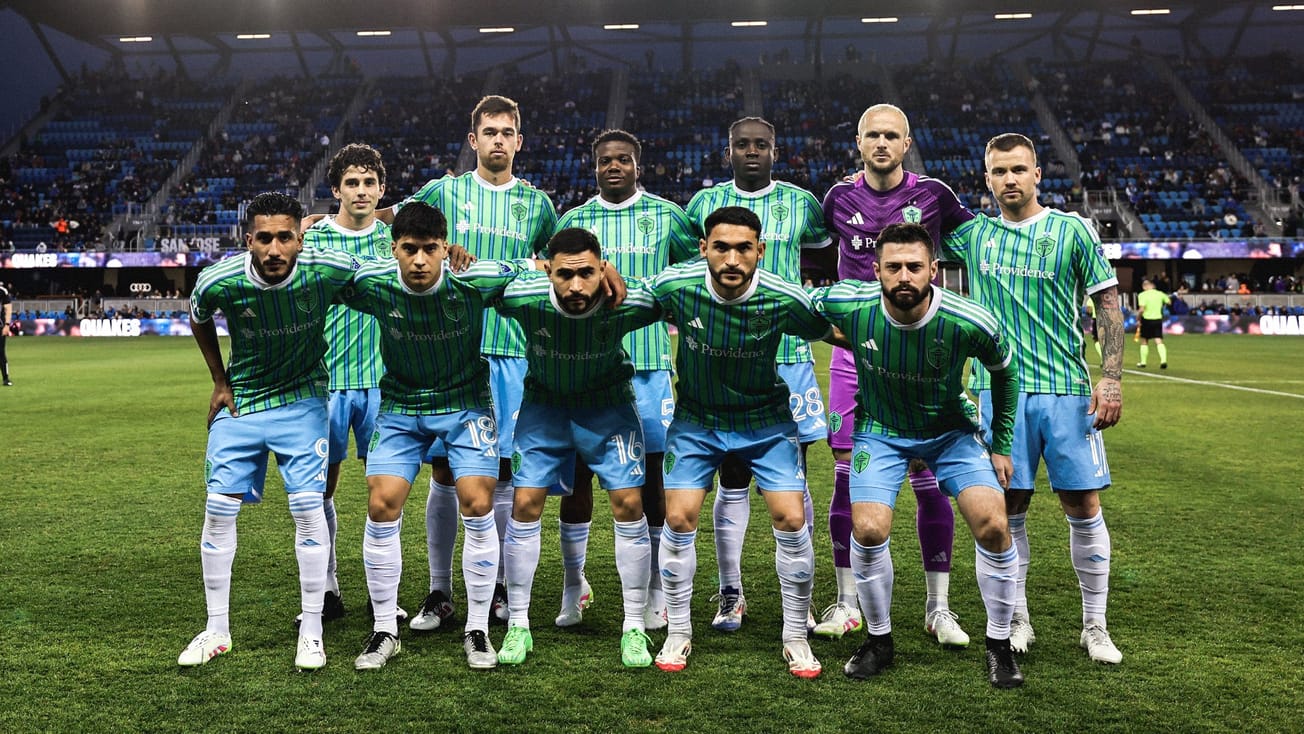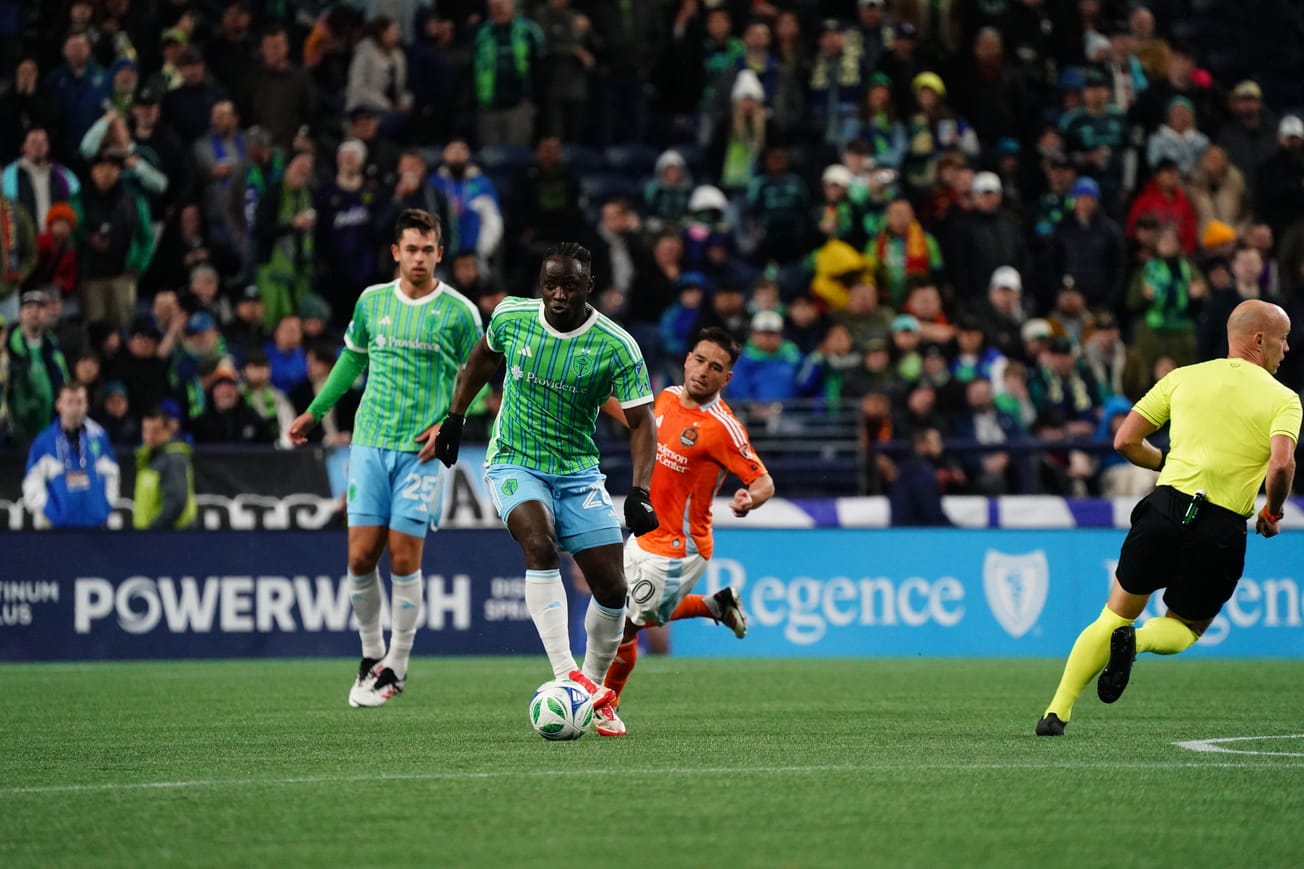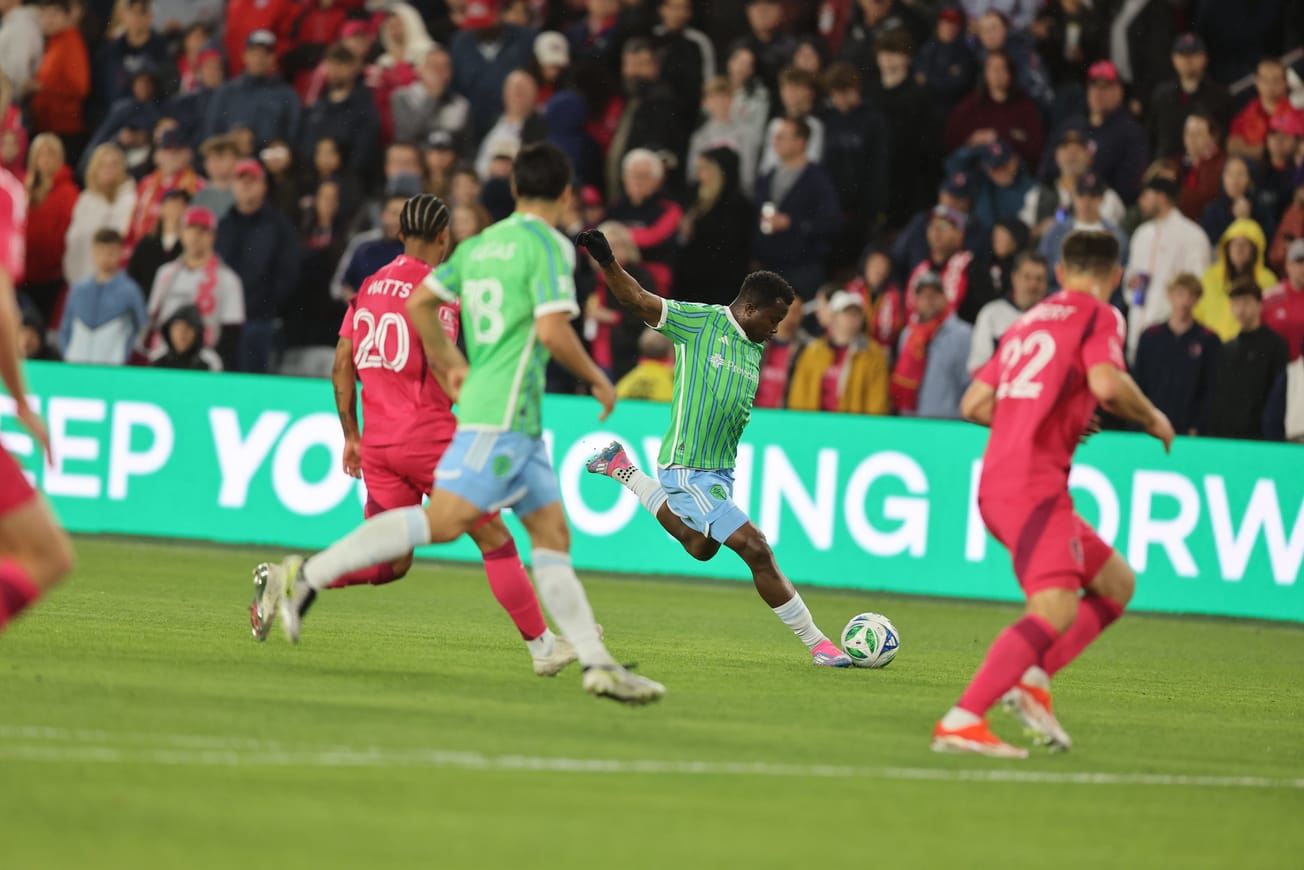#6 Stefan Frei – 6.33 in 36 appearances
Community rating – 6.55
MOTM = 7 High = 8 Low = 5
Somehow still without a GKOTY to his name, Stefan Frei was content to lead the best defense in the league in 2023. It’s maybe surprising that Frei scored this low, “only sixth,” after earning many MOTM awards and breaking his own shutout record. Much of this was due to the Sounders matches in that long stretch of the year when the defense allowed zero or one goal and maybe scored one. With scores deflated from these summer months, it was hard to judge Frei’s impact outside of strong team play, although he rightfully received credit for stellar outings in many close matches. He was so good (.87 GAA, lowest in his career) that many, including myself, took him for granted and expected shutouts every match. Seattle’s defense was an extension of Frei himself, compact and positionally almost flawless, limiting opponents to a few speculative looks, and conceding mostly unsaveable goals.
What I liked: Frei led Seattle with a team-high seven MOTM awards in 2023 on the way to his record-breaking shutout mark. Throughout the year he was masterful in directing a stout defense in front of him and was nearly perfect technically. There were few spills, drops, mistouches, or mistakes, which is pretty amazing as almost all keepers have those big gaffes. When the match allowed, Frei used his feet as an extra option, but he also made excellent decisions on when to forgo the possession and just clear it out, allowing his defense to work in front of him. His leadership cannot be understated, as taking the armband from team legend Nico Lodeiro came with more responsibility. Stefan handled it with his usual grace and maturity to influence from the back. Seattle’s elite defense fit Frei’s skills particularly well; using excellent positioning and relying on his solid defenders, he could predict the movement in front of him to force routine saves. Frei handled everything with poise and was consistently great.
What I didn’t like: This was the least impressive record-breaking season you may ever see, save-wise, as there were very few that fell into the “spectacular” category. While Frei is a master of positional goalkeeping, with the team struggling to score for months at a time, there were opportunities for a “stand on his head” goalkeeping performance that never materialized. And his save percentage wasn’t notable: Frei had his lowest save percentage since 2014, his first season in Seattle. Although he was piling up shutouts, he didn’t save a lot of shots, because the team limited opponents to few quality looks. With the defense playing so well, it was hard to know how much credit to give the field players versus Stefan himself, as often he had only a few opportunities to affect the match. His low point: conceding four goals after the 70th minute against Portland. This was an abysmal performance and it accounted for 12.5 percent of his goals against all season.
Moving forward: Frei showed that not only is he still elite, he’s durable and he’s not going anywhere. This led to his main competition leaving in the offseason, and while Stefan Cleveland wasn’t pressing Frei for time, having him as the backup was more of a security blanket for the team. Frei showed that with a solid defense around him, he wasn’t going to be beaten on anything except the spectacular, and that's exactly what it took to knock Seattle from the playoffs. There are no signs of degradation in Frei’s game due to age or wear and tear, with 2023 being both a resilient and effective year for our 36-year-old keeper.
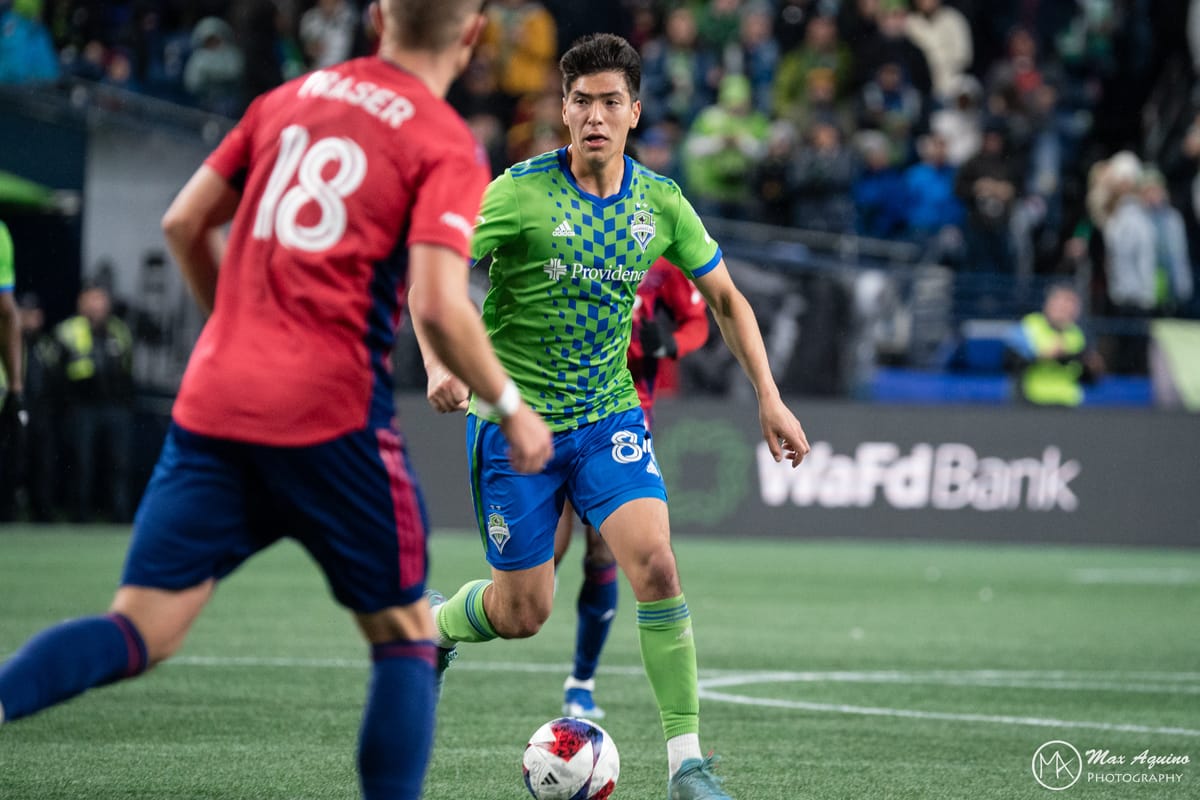
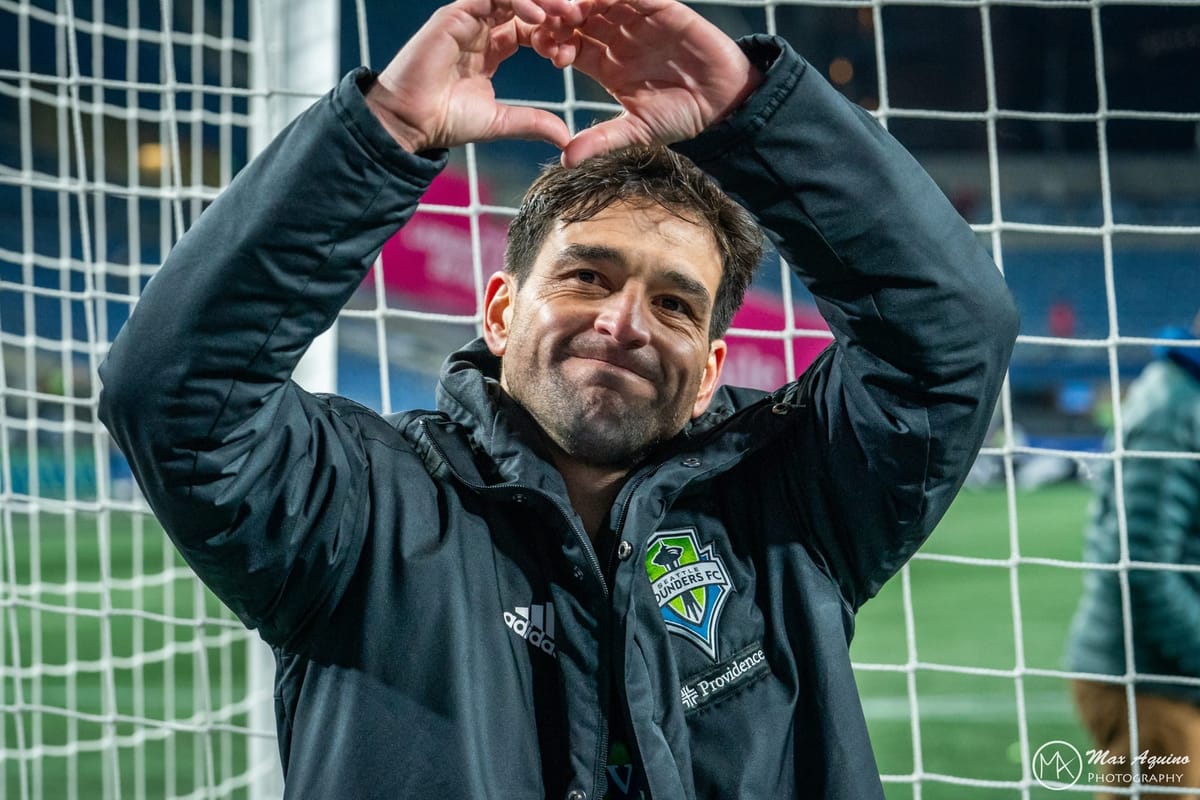
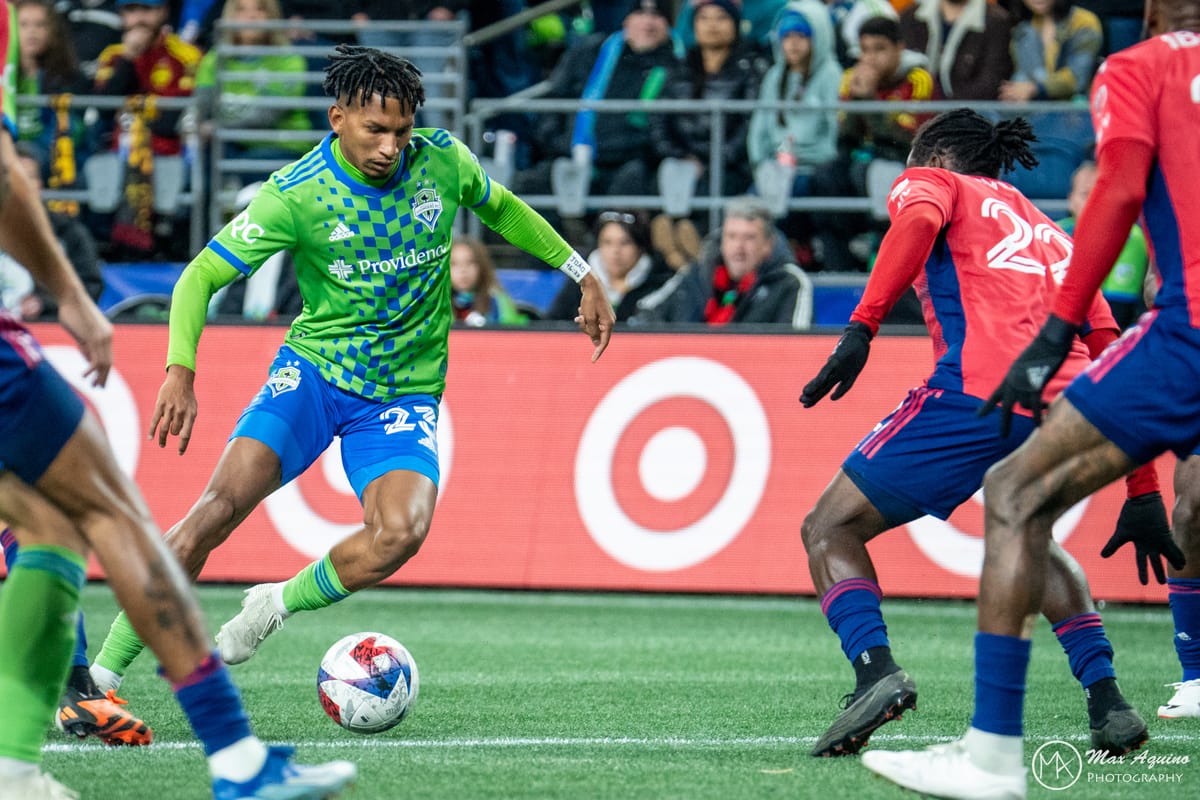
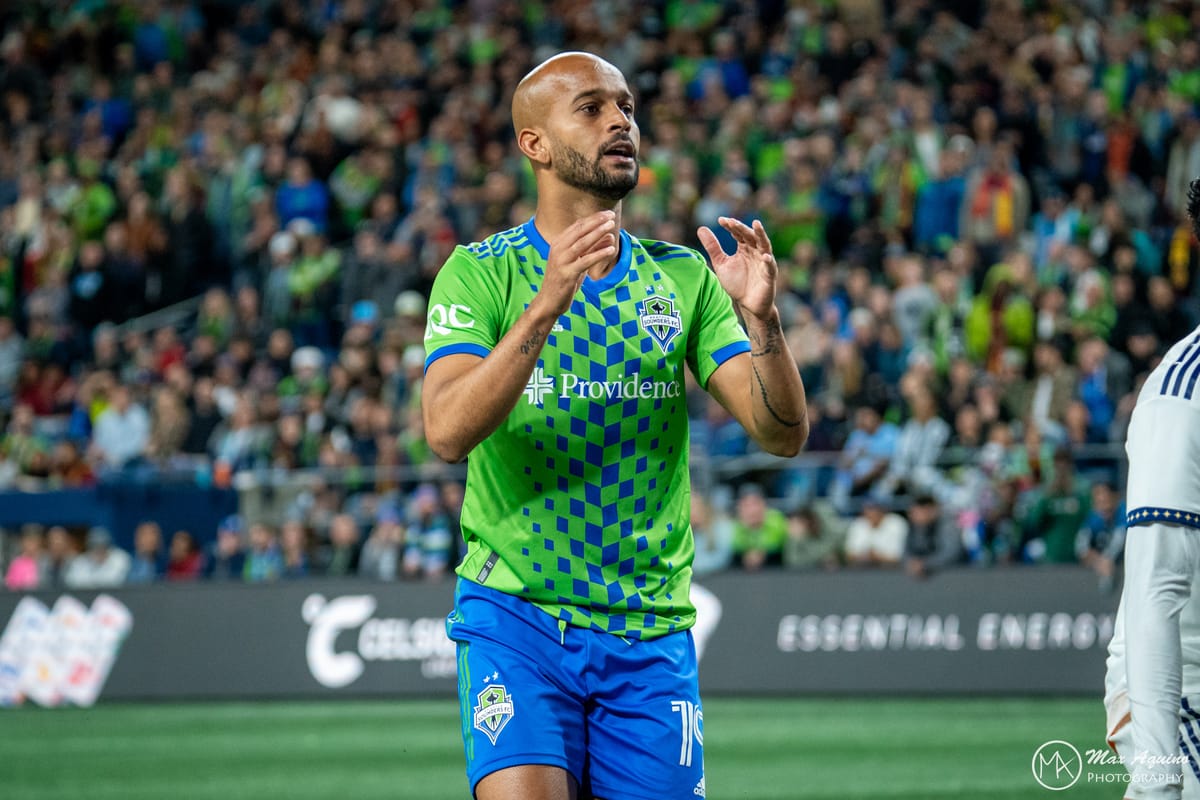
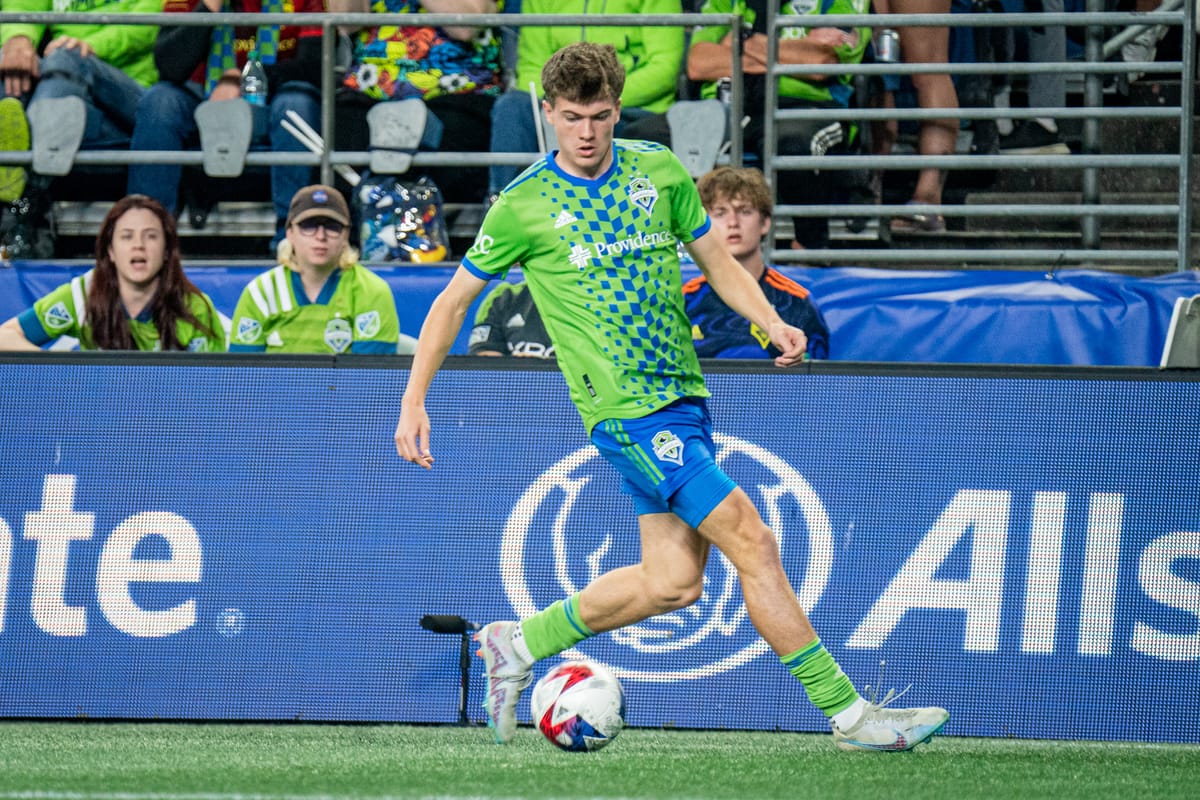
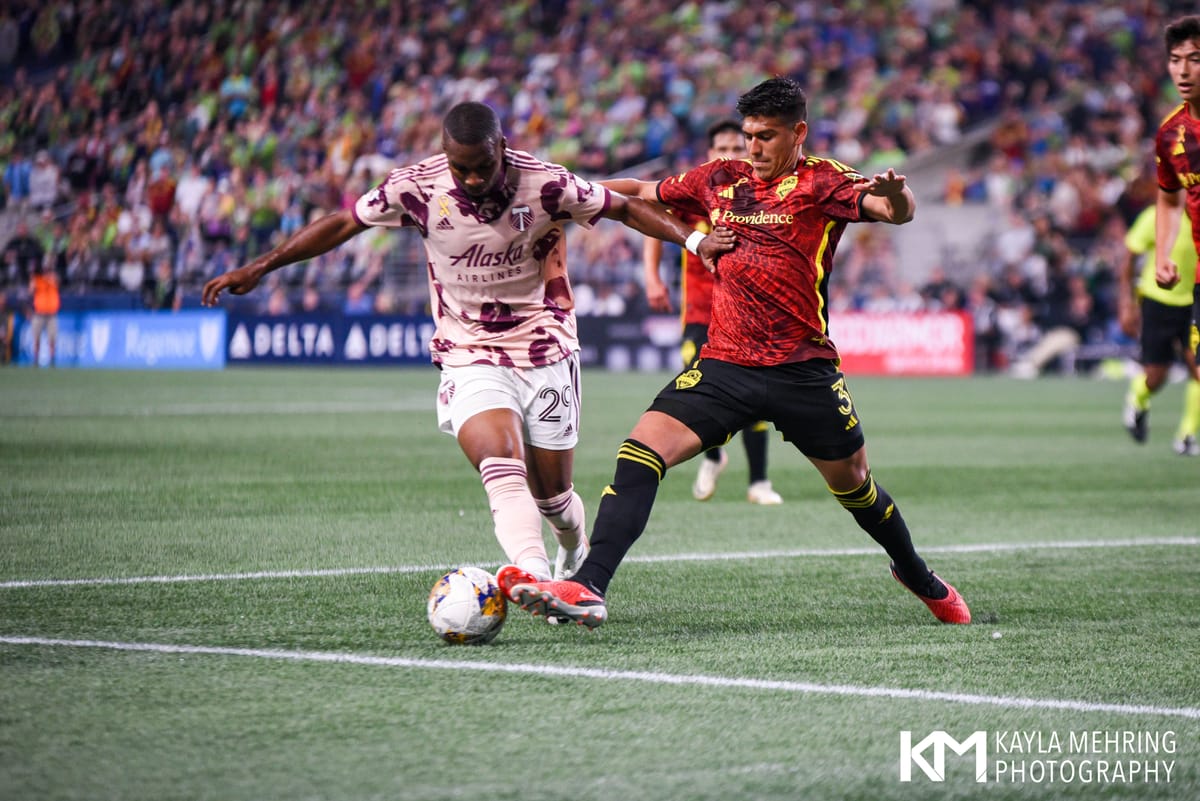
#5 Jordan Morris – 6.37 in 30 appearances
Community rating – 6.47
MOTM = 3 High = 10 Low = 5
Jordan Morris charged into 2023 with eight goals in his first six matches to lead the entire league. He was an unstoppable force whether he lined up wide or forward, and he found success vertically and in the air. The team’s midseason lull included Morris, but so did the late-season resurgence. He ended the season with 13 goals and one assist, earning the starting striker role throughout the playoffs and scoring multiple times in the postseason. Some small injuries forced him to miss time in 2023, but his 30 appearances included his most productive season since his last knee injury. Continually improving, Jordan was tasked with playing a number of attacking roles on each wing and up front, and he was an ever-present threat to get in behind, an essential ingredient to balance out the possession-heavy Sounders attack, and a guy who offered a deadly aerial threat.
What I liked: The list of Sounders who have scored four goals in a game contains one name: Jordan Morris. He accomplished this in a masterful display against Sporting Kansas City early in the year, and his finishing was clean as he and the team raced out to a fast start. Paired in a deadly combination with Léo Chú, these two burners torched defenses, using their speed and elusiveness to connect often. Displaying his trademark speed, Jordan added tenacity and clearly was more comfortable using his size, strength, and aerial ability this year (six headed goals shows a massive improvement). By the end of the season it was Morris, not Raúl Ruidíaz, who was the incumbent starting striker, and he was a vertical threat who led the team in goals when put in a goalscoring position. This led to multiple playoff goals as his speed tortured opponents, and his opportunistic finishing scored twice versus Dallas. Jordan also improved with his back to goal, being a target forward in the playoffs and getting mixed up in some quality Roldanery which led to Seattle’s offensive success.
What I didn’t like: Seattle needs more from the striker position, no matter who is there, than what they got in 2023. Morris had a nine-game scoreless slump that coincided with some of Seattle’s worst play of the year midseason. He did score two playoff goals, but only had two goals in his previous 14 appearances, even when Seattle played better. Moving Jordan to the forward position changed the formational tactics and helped the Sounders go on a nice end-of-year run, but Morris himself didn’t always seem to fit. His holdup play was excellent late in the year, but not creating for others and only scoring in spurts made you question whether he's the right fit up front. Morris ended the year with a disappointing single assist, and although he played plenty on the wing, there wasn’t the creativity you’d like to see paired with the improved scoring touch.
Moving Forward: It looks like the Sounders are happy with Morris as a striker and he will likely have competition from Ruidíaz for starting minutes, but these two are about as diverse a pairing as you’ll find for one role (and perhaps they’ll see time together as a result). There are plenty of holes in Jordan’s game, and if he’s to be a full time striker, he’ll need to find a more deadly finishing touch from outside six yards. Part of his value up front is the space that his movement creates. When combined with his exceptional speed, Morris can create opportunities for others without the ball, limiting counter pressing and opening shape for teammates. Jordan becoming a bonafide monster in the air combines nicely with his improved left foot. This player is continuing to make massive upgrades to his skillset every season — not just reversing his deficits but turning them into strengths.
#4 Albert Rusnák – 6.44 in 36 appearances
Community rating – 6.39
MOTM = 1 High = 8 Low = 5
Rusnák was the Sounders’ everyman in 2023, playing all over the field and doing well just about everywhere he played. The kind of glue player that makes everyone around him better, Albert settled into the center attacking midfield late in the season, ousting Nico Lodeiro, and making the team his. This led to a late-season resurgence and Seattle looked like a cup contender when it all came together. Albert had seven goals, good enough for second best on the team, and he paired that with four assists. For someone who looks to be even more integrated into the center of the field, the single MOTM performance illustrates how under the radar his connecting play was and how differently the team played when Albert assumed middle duties.
What I liked: Rusnák is a force multiplier and someone who does almost everything at a high level. This is why, when asked to play defensive midfield, he was okay there, due to his smart play and incredible touch. Where he excelled, however, was when he was moved to a free central role and surrounded by vertical threats. In the last eight matches of the season, Albert was able to use his superior tactical movement and combination skills to push Seattle into perpetually advantageous possession, starting as the central attacking midfielder. Doing a little of everything, Rusnák had a knack for finding shots in the box or near the edge of the 18. After moving to the attacking mid for good, he averaged three shots per game over the last eight matches, a tremendous number for a midfielder. He did all this without demanding the ball, averaging only about 50 touches in those final eight games. Amazingly clean with the ball, he managed to push the attack forward but still completed an amazing 88 percent of his passes for the entire season, displaying a weight and touch that was best on the team.
What I didn’t like: Yet another quality attacker for Seattle who had poor assist numbers, Rusnák didn’t have many big chances manufactured, and there were no consistent creators for the Sounders in 2023 after the spring. This was a dismal combination with no consistent finishers in the middle of the year. Although the team figured out how to create more tangible pressure, they never returned to the dominant scoring form of the first few months. Rusnák had four assists but none to Morris, which was an issue. Two defensive players had as many assists as Rusnák, and while Albert was great at being the “pass before the pass” creator, he needed to have more direct impact with creating shot opportunities for others. He had over 20 fewer key passes than Nico in more time, and one way to improve that number would be to remember how to take set pieces. Offered multiple opportunities all season, Rusnák was one of many who attempted and failed to offer consistently dangerous corner kicks or dead ball service.
Moving Forward: Much of Albert’s output came from the number ten position, and his stats when playing centrally looked as good or better than anything he put up prior to being a Sounder. Seattle may be content to start the year with Albert as the main playmaker, and his brand of combining with quality players around him should highlight a deep Seattle roster that can present diverse lineups. A full offseason as the man in the middle should benefit Rusnák, who can focus on pulling the strings centrally in combination with defensive mids and wingers. He will need to continue to be goal dangerous from the top of the box, and hopefully he can look more vertically when the keys to the offense are handed to him in 2024.


